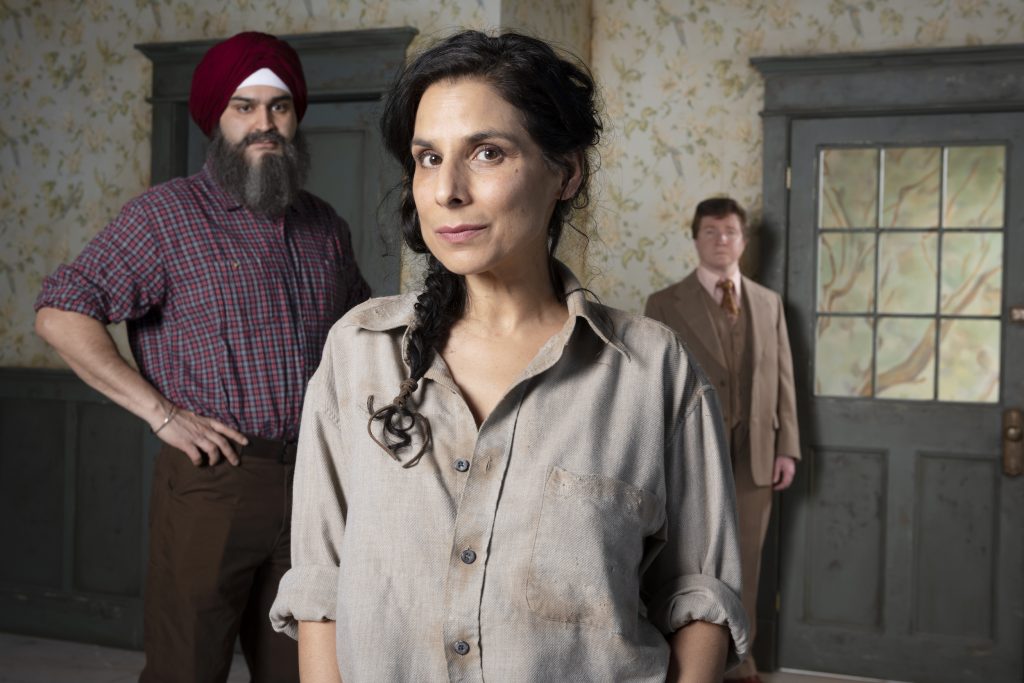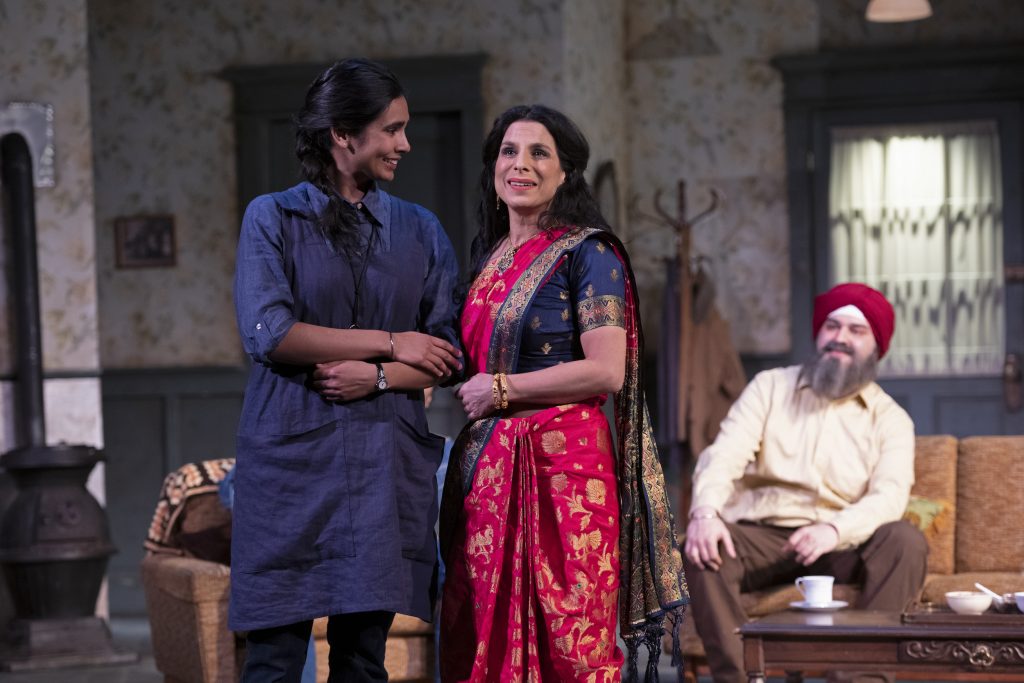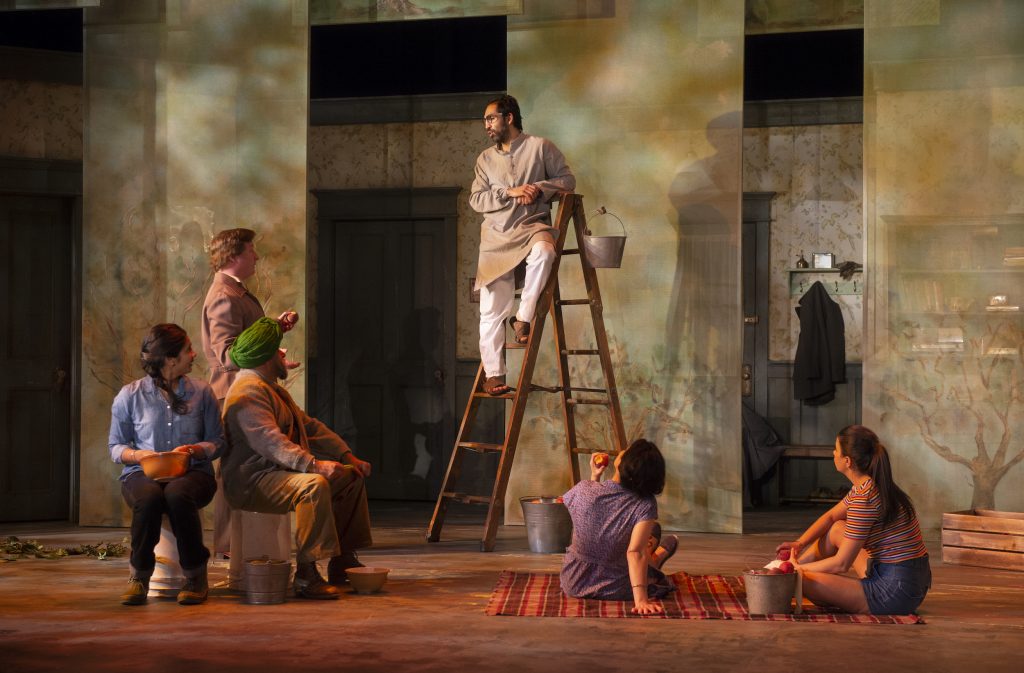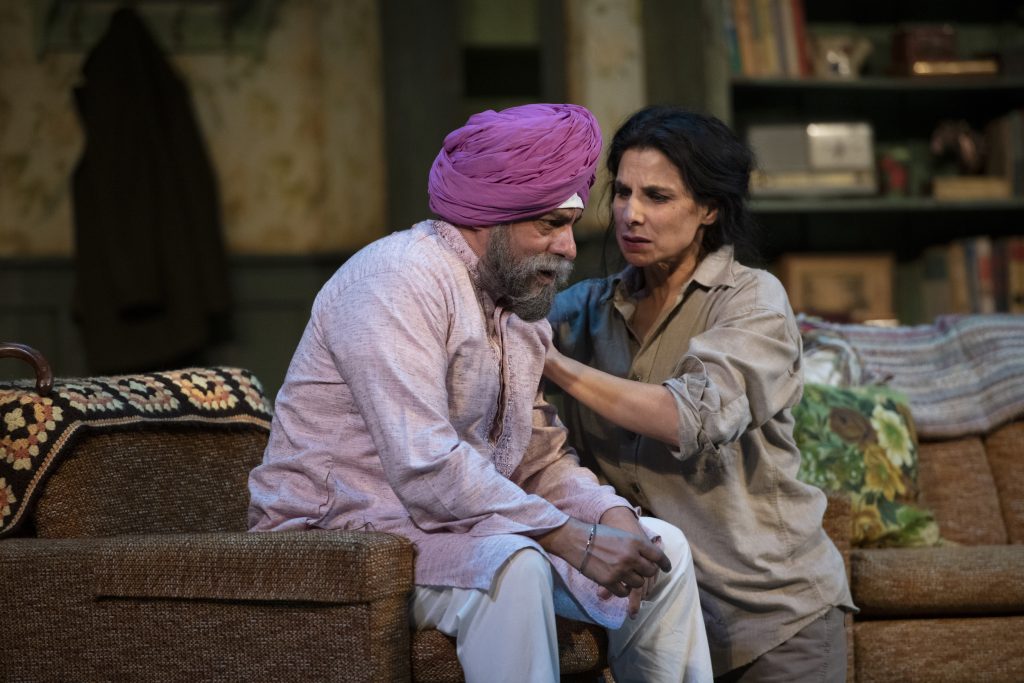
Credit: David Cooper
Stanley Theatre until April 21, 2019
Tickets from $29 at artsclub.com or 604-687-1644
Posted March 29, 2019
The problem with a truly great play is that someone is always trying to adapt it or use it as a source for something even remotely similar. It seldom works: why tamper with perfection?
So, it took chutzpah for young playwright Sarena Parmar to take The Cherry Orchard, relocate it to Kelowna, overlay Chekhov’s masterpiece with issues of cultural diversity and take it out of pre-revolutionary Russia and into contemporary times. The big question is why Parmar would do it. The only rationale, it seems, is that her family – immigrants from India in 1967 – are selling the Kelowna orchard they worked so hard to establish. For her and her family, a way of life is disappearing. Unlike the characters in Chekhov’s play, however, Parmar’s family is selling the orchard, not losing it.

Credit: David Cooper
The other problem with adapting is that for those familiar with the original play, it’s very difficult to stop the head games. It’s Lyubov Ranevskaya in Chekhov’s script; East Indian Loveleen (Laara Sadiq) in Parmar’s play. Lyubov’s brother Gayev is Gurjit (Munish Sharma), Varya is Barminder (Adele Noronha). Lopakhin is Michael (Andrew Cownden). Like a jigsaw puzzle, it’s difficult to make it all fit. For those who don’t know the play, however, it probably doesn’t matter. But, still, who are these characters and why are they hanging around this Kelowna home and orchard?
Another problem with shifting The Cherry Orchard to The Orchard (After Chekhov) is that the original was written with the Russian Revolution on the horizon. The play is permeated with the landed gentry’s anxiety. The aristocracy was going down; the middle class was rising. That’s not what’s happening today.
And, of course, there are tonal issues: Chekhov’s play is subtlety itself. The Orchard (After Chekhov) is all over the place: almost slapstick at times, melodramatic at others.

Credit: David Cooper
What does this production have going for it? A pretty set by Marshall McMahen: a row of painted trees overhangs the stage. Laara Sadiq, as always, brings strength and dignity to her role and Adele Noronha is appropriately awkward as unhappy Barminder.
However, director Jovanni Sy lets Cownden completely off-leash as Michael: more clownish than aggressively entrepreneurial, at one point Michael chokes on a cherry and Cownden staggers around before a thump on the back dislodges it. Funny? Not really. Cownden does it well, but it’s so out of place.
And while I’m nitpicking: could someone not have found some old dusty jeans for Andrea Menard (as Charlie)? Charlie (Charlotta in Chekhov’s original) is apparently a First Nations ranch hand but her jeans look right off the rack. At least the overalls on Paul (Tom McBeath) look like they’ve had some wear.

Credit: David Cooper
I’m wondering if the playwright’s family’s orchard is destined for grapes or marijuana – both far more lucrative crops that cherries, peaches or apples. Now there’s a play I’d like to see: BC fruit may soon be a thing of the past and does anyone care?
Thirty years ago, I saw La Cerisaie (The Cherry Orchard) in Paris in an almost derelict little theatre near the Gare du Nord. We sat on benches, the performances area had some wooden crates covered with old, tattered Persian-style carpets and the condemned balcony had a frieze of plaster cherubs with broken wings and missing noses. In French, the production was directed by the great British director Peter Brook and he and his company got it so right, we all – audience and actors – wept with joy. I should probably never see The Cherry Orchard again. Why would I ruin a perfect memory?

